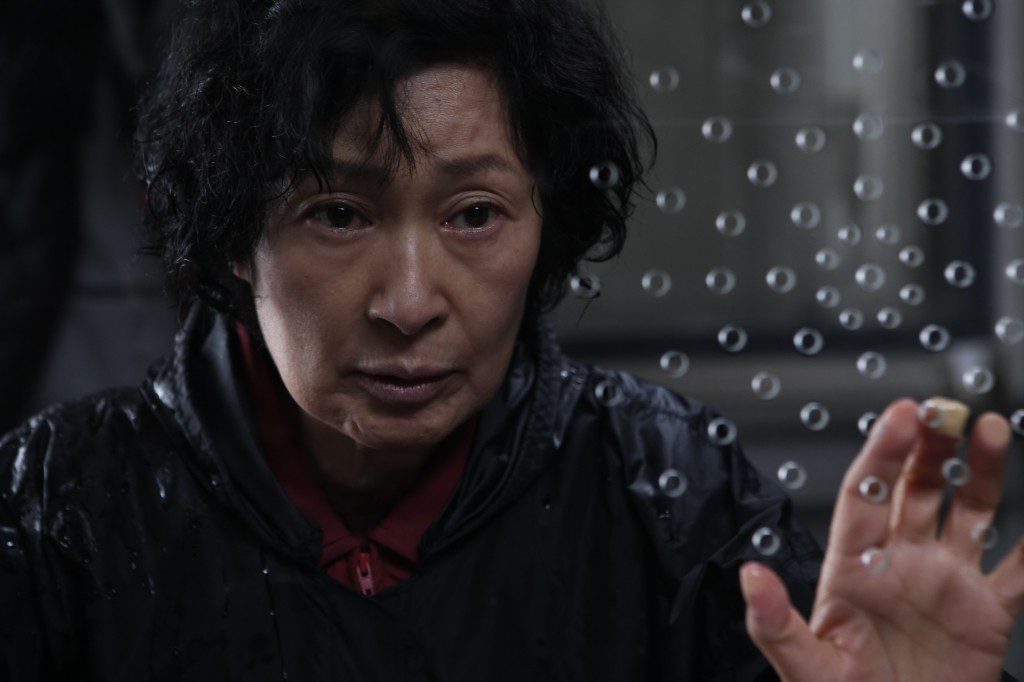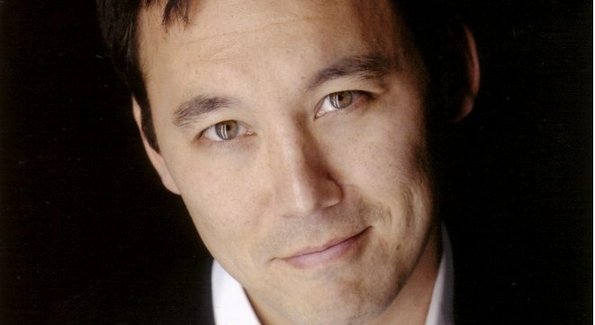Pictured above: Kim Hye-Ja in Mother. Photos courtesy of Magnolia Pictures.
by JAEKI CHO
Bong Joon-ho is known for synthesizing various genres to create films that critique both the political and cultural landscape of Korea. In Mother, the South Korean filmmaker’s first feature since The Host (2006), Bong’s strange but captivating blend of comedy, drama, suspense and mystery unveils a mother’s love for her son—a slow, socially awkward adult who is accused of a heinous crime (played by Won Bin). The stunning portrayal of the title character by Kim Hye-ja, one of Korea’s most respected veteran actresses, shocked many spectators; the actress, known for playing frail motherly roles, takes on a much more complex, desperate and disturbing persona. As a result, the film has made significant noise in Korea and beyond. Recently, filmmaker Bong was in New York City and discussed with KoreAm his “maniacal” lead actress, James Cameron’s Avatar, and why Olympian Kim Yu-na makes him feel useless.
What were your thoughts on Kim Yu-na’s Olympic free skate?
I feel like making all these films is useless. The level of excitement she created within those four minutes is untouchable. But, I hope everybody—TV, press—leaves her alone. She doesn’t get as much financial support as Japan’s Asada Mao. So she basically makes her own money to pay for Brian Orser (her coach), David Wilson (her choreographer) and all her other expenses. If you look at it, she’s not a Korean player; she’s Kim Yu-na, an individual. What has Korea done for her?
These days, my mother has abandoned me for her.
So did the rest of Korea’s mothers.
 Director Bong Joon-ho on the set of Mother.
Director Bong Joon-ho on the set of Mother.
Speaking of mothers, in your new film, Kim Hye-ja plays an overprotective parent who desperately attempts to exonerate her son. How did Mother get pieced together?
I actually wrote the story because of her. Although many say she’s our “nation’s godmother” and so on, I always thought she had these maniacal qualities. And there were no films or dramas that took that side out of her. So I wanted to present her in a completely different way. After Memories of Murder premiered [in 2003], I mentioned in many interviews that I wanted to work with her. I guess she heard it through the grapevine and contacted me. Around 2004, I told her the story I had in mind; she liked it, and from that point on, we were able to build very easily.
Did you face any difficulties because of her during the shoot?
Despite her age being 68, she was in great shape and kept up with everyone’s pace. We faced no delays because of her while we were shooting. She’s a great drinker and every once in a while she would party with us until early in the morning. She did mention that thanks to this film, for the first time in her life, she was slapped in the face.
Really?
There’s a scene in the film where she gets slapped. If it had been shot from a front or back angle, it could’ve been faked. But since it was shot from the side, she really got hit. That shot was very difficult to maneuver because of all the extras that were involved in the scene. So she ended up getting slapped about 10 times in a row—to the point her face got swollen.
Then there’s Won Bin, who plays her helpless, incapable son. Personally, I thought his character was a satirical portrayal of an average Korean male.
I think you saw the film very objectively. Korean people tend to rely heavily on their parents compared to those in Western societies. It’s a huge cultural difference. In Korea, many critics emphasized the special bond between Won Bin’s character and Kim Hye-ja’s character. But personally, I was trying to bring out what you mentioned, along with what the Korean critics focused on.
Your films tend to focus on confrontations among society’s have-nots.
Yes, I would say that’s a quality of Mother. The Host was a story about the poor helping each other out, while Mother was a story about the poor hurting each other. I think it’s an instinctive approach of mine when I construct storylines.
But your upcoming film Le Transperceneige, based on a French graphic novel about a train with various social classes, is about the poor fighting the rich.
You’re right. It’s basically about people riding economy [class] having problems with people riding business and first class. Trains are like straight-line prisons. To get from point A to point C, you must go through point B. So there must be some sort of conflict, which erupts in such a confined setting. I wanted to capture that aggressiveness in a film.
Your previous film The Host was Korea’s biggest box office hit—until Avatar came along.
It was bound to happen. Avatar is breaking every box office record around the globe. I even went to see it twice.
Can we expect to see you experimenting with 3D in the near future?
[Laughs.] It’s not something I can do just because I want to do it. When directors try to do something they’re not used to without much preparation, a drastic failure is bound to happen. I’m actually excited to see who’s going to direct a major 3D disaster that’s likely to happen real soon.
Do you ever plan on making romantic comedies or heart-warming dramas?
I’ll leave that to those that are great at doing those types of films. I’ll just continue to work as that perverted and abnormal director.
In that case, guys like Martin Scorsese are perverted and abnormal as well.
He’s seriously perverted and abnormal. Do you hear the way he talks?
Mother is now playing in select theaters across the United States. For screening dates and locations, visit www.magpictures.com.





